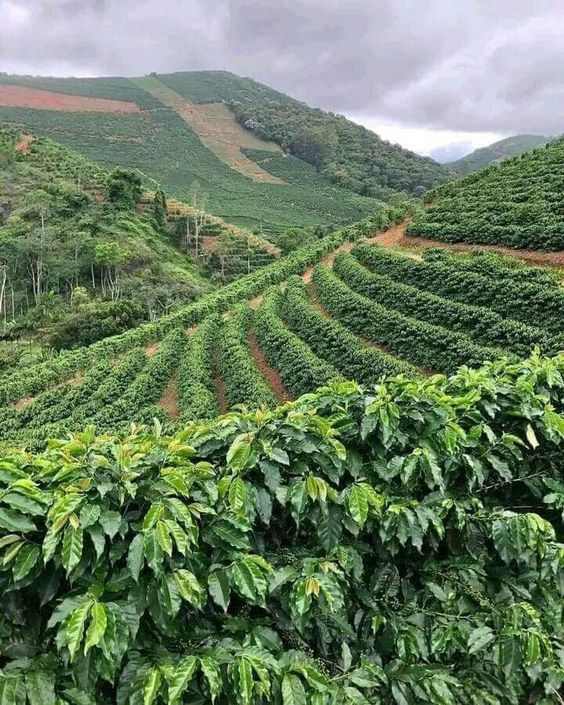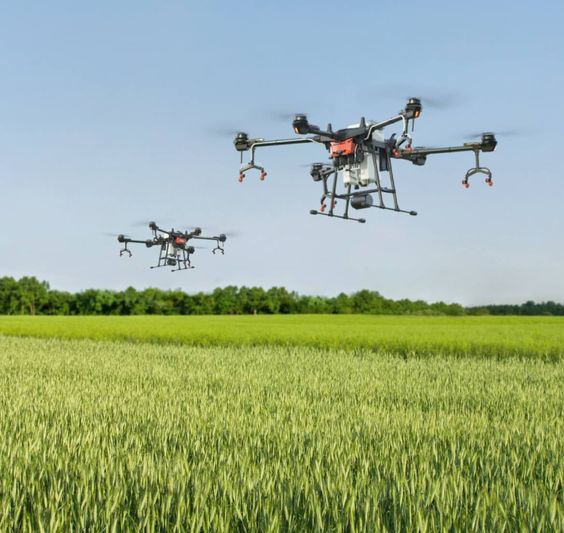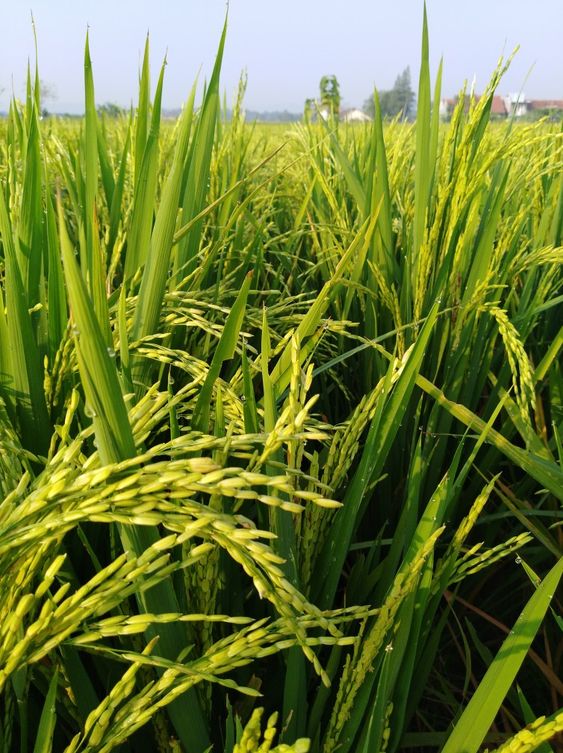Smart Agriculture in Tropical Agriculture: Cultivating a Sustainable Future
Tropical Agriculture, a vibrant tapestry of diverse ecosystems, hold immense agricultural potential. However, challenges like unpredictable weather patterns, resource scarcity, and pest outbreaks often threaten food security and farmer livelihoods. Here’s where Smart Agriculture emerges as a game-changer, leveraging technology to empower tropical agriculture for a sustainable and prosperous future.
Smart Agriculture, also known as Precision Agriculture, integrates information and communication technology (ICT) with agricultural practices. This translates to a data-driven approach that optimizes resource use, maximizes yields, and minimizes environmental impact. It’s a perfect fit for tropical agriculture, where complex ecosystems and dynamic environments demand a nuanced understanding.
Contents
- 1 Key Technologies for Smart Tropical Agriculture
- 2 Benefits of Smart Agriculture in Tropical Regions
- 3 Objectives of Smart Agriculture in the Tropics
- 4 Explanation and Usefulness of Smart Agriculture Practices
- 5 The Road Ahead: Fostering Smart Agriculture in the Tropics
- 6 Examples of Smart Agriculture in Action
- 7 The Road Ahead: Building a Collaborative Ecosystem
Key Technologies for Smart Tropical Agriculture
- Internet of Things (IoT): A network of sensors, drones, and weather stations collects real-time data on soil moisture, temperature, pest infestation, and crop health.
- Big Data Analytics: This vast amount of data is analyzed to identify patterns, predict potential problems, and make informed decisions.
- Artificial Intelligence (AI): Machine learning algorithms are trained to automate tasks, optimize irrigation schedules, and recommend fertilizer application based on real-time data.
- Remote Sensing: Satellite imagery and aerial photography provide insights into crop health, nutrient deficiencies, and water stress across large fields.
- Blockchain Technology: Secure and transparent record-keeping facilitates traceability of agricultural products, ensuring fair prices for farmers and quality assurance for consumers.
Benefits of Smart Agriculture in Tropical Regions
- Improved Resource Management: Precise data on soil conditions and irrigation needs leads to efficient water utilization, a critical factor in tropical regions prone to drought.
- Enhanced Crop Yields: Smart monitoring of crop health allows for early detection of pests and diseases, leading to timely interventions and increased yields.
- Reduced Environmental Impact: Precision application of fertilizers and pesticides minimizes environmental pollution and promotes sustainable agricultural practices.
- Empowering Farmers: Small-scale farmers, often the backbone of tropical agriculture, gain access to valuable data and tools that empower them to make informed decisions.
- Market Access and Transparency: Blockchain technology can facilitate access to fair-trade markets and improve transparency in the food supply chain.
- Climate Resilience: Smart agriculture builds resilience against extreme weather events through data-driven decision-making and early warnings.
Objectives of Smart Agriculture in the Tropics
- Increased food production: Tropical Agriculture aims to meet the growing demand for food in tropical regions, ensuring food security for a rising population.
- Enhanced Farm Profitability: Tropical Agriculture,By optimizing resource use and improving yields, smart agriculture helps farmers increase their profit margins.
- Sustainability: This approach promotes sustainable agricultural practices by reducing environmental impact and promoting biodiversity.
- Improved Market Access: Tropical Agriculture,Smart agriculture platforms empower farmers to connect with distant markets and obtain fair prices for their produce.
- Reduced Food Waste: Improved monitoring throughout the supply chain can minimize post-harvest losses, ensuring food reaches consumers in good condition.
Explanation and Usefulness of Smart Agriculture Practices
- Precision Irrigation: Sensors monitor soil moisture levels, triggering automated irrigation systems that deliver the exact amount of water needed, reducing water waste.
- Variable Rate Fertilization: Soil nutrient analysis guides the application of fertilizers based on specific needs of different areas within a field, optimizing fertilizer use.
- Smart Pest Management: AI-powered tools analyze data to predict pest outbreaks and recommend targeted interventions, minimizing pesticide use.
- Crop Health Monitoring: Drones equipped with multispectral cameras capture high-resolution images used to detect crop diseases and nutrient deficiencies at an early stage.
- Weather Monitoring and Alerts: Advanced weather stations provide real-time data and forecasts, allowing farmers to prepare for extreme weather events.
The Road Ahead: Fostering Smart Agriculture in the Tropics
Tropical Agriculture,Overcoming the challenges and maximizing the benefits of Smart Agriculture requires a multi-pronged approach. Here are some key strategies:
- Government Initiatives: Governments can play a crucial role in promoting Smart Agriculture by providing subsidies for technology adoption, investing in rural infrastructure development (internet connectivity, electricity), and establishing training programs for farmers.
- Public-Private Partnerships: Collaboration between technology companies, research institutions, and NGOs can ensure the development of affordable, user-friendly Smart Agriculture solutions tailored to the specific needs of tropical farmers.
- Capacity Building and Training: Educational programs and workshops can empower farmers to understand the benefits of Smart Agriculture technologies and equip them with the skills to use them effectively. This includes training in data interpretation, using digital tools, and troubleshooting technical issues.
- Localized Solutions: Developing Smart Agriculture solutions that are context-specific and culturally appropriate for diverse tropical regions is crucial for successful adoption. This may involve incorporating local languages and indigenous knowledge systems into technology design.
- Financial Inclusion: Micro-loan programs and other financial instruments can help small-scale farmers overcome the initial investment hurdles associated with adopting Smart Agriculture technologies.
Examples of Smart Agriculture in Action
Tropical Agriculture,Several success stories demonstrate the transformative power of Smart Agriculture in the tropics:
- Precision Irrigation in Kenya: Smallholder farmers in Kenya are using mobile phone apps connected to soil moisture sensors to optimize water use in maize cultivation. This has led to significant water savings and increased yields.
- Drone-based Crop Monitoring in Thailand: AI-powered drones are being used in Thailand to identify and map the spread of fruit fly infestations in mango orchards. This allows for targeted pesticide application, minimizing environmental impact.
- Blockchain for Fair Trade Coffee in Colombia: Blockchain technology is being used to track coffee beans from Colombian farms to international markets. This ensures transparency in the supply chain, guaranteeing fair prices for coffee farmers.
The Road Ahead: Building a Collaborative Ecosystem
As we move forward, fostering a collaborative ecosystem is crucial to accelerate the adoption of Smart Agriculture in the tropics. Collaboration between different stakeholders can take many forms:
- Public-private partnerships: Technology companies and research institutions can work together to develop affordable, user-friendly Smart Agriculture solutions tailored to the needs of tropical farmers. Governments can offer financial incentives and create a regulatory environment that fosters innovation.
- Farmer cooperatives: Enabling farmers to form cooperatives can help them pool resources, share knowledge, and negotiate better deals with technology providers and input suppliers.
- Knowledge sharing platforms: Creating online platforms where farmers can access information on new technologies, best practices, and success stories can accelerate adoption and encourage peer-to-peer learning.
- International collaboration: Sharing knowledge and expertise between developed and developing countries can accelerate the progress of Smart Agriculture in tropical regions.
Tropical Agriculture Smart is not just about technology; it’s about empowering farmers, promoting resource efficiency, and building climate resilience. By embracing innovation and fostering collaboration, we can unlock the immense potential of Smart Agriculture to transform tropical agriculture. As we cultivate a smarter future for this vibrant region, we pave the way for a more sustainable and food-secure world.




